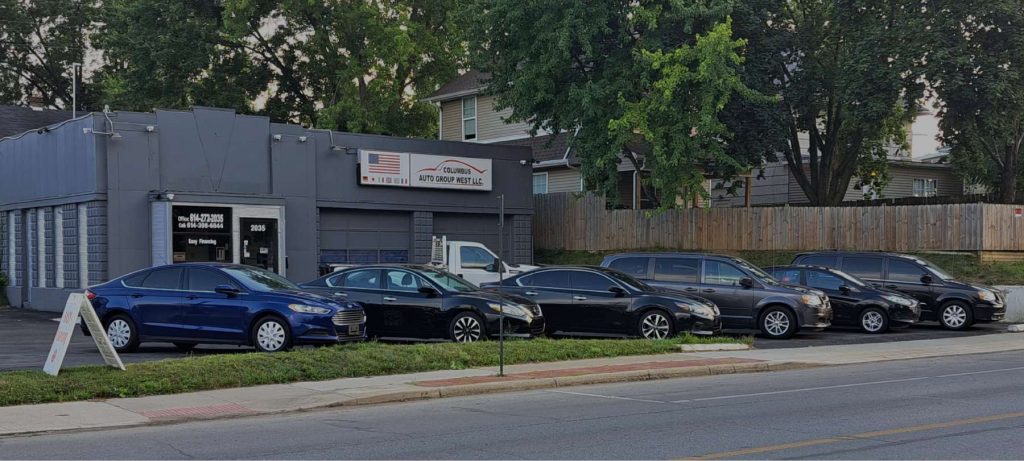What Do I Need to Know Before Buying a Used Car in Ohio? A Master Guide for Smart Buyers
Posted Wednesday, Feb 28, 2024
Are you in the market for a used car in Ohio? You are not alone. Ohio is growing in population. Lots of people and businesses moving into this State makes transportation very important. Buying a used car can be a rewarding experience, but you have to know a few basic tips to give you a good buying experience. You should know what you need in order to buy a used car in Columbus or anywhere in the state of Ohio. We'll walk you through the essential steps and requirements to ensure a smooth and successful used car purchase in the state of Ohio.
Understanding Ohio's Used Car Buying Process:
- Research and Budgeting: Before diving into the used car market, it's essential to do thorough research on the type of car you want, considering factors like make, model, year, and mileage. Simultaneously, establish a realistic budget that not only covers the purchase price but also includes additional costs such as taxes, registration fees, and potential repairs.
- Know Your Credit Score: Understanding your credit score is very important, as it will influence the financing options available to you. A higher credit score often leads to more favorable loan terms. You can obtain a free credit report annually from major credit bureaus, allowing you to identify and address any issues before applying for a loan.
- Choose a Reputable Seller: When buying a used car, you have various options, including dealerships, private sellers, and online platforms. It's advisable to choose a reputable seller with a track record of fair and transparent transactions. Look up the online reputation of the dealership. What are people saying about the dealership and how does the dealership respond.
- Inspect the Vehicle: Whether you're buying from a dealership or a private seller, always inspect the vehicle thoroughly. Look for signs of wear and tear, check the maintenance history, and consider obtaining a vehicle history report. If you're not familiar with car mechanics, it's wise to bring along a trusted mechanic for a professional inspection.
- Secure Financing: If you're not purchasing the car outright, securing financing is a crucial step. Many banks, credit unions, and online lenders offer pre-approval, allowing you to know your budget before heading to the dealership.
- Complete Necessary Paperwork: Once you've agreed on the terms and price, it's time to complete the paperwork. Ensure that all necessary documents, such as the bill of sale, title transfer, and any additional agreements, are properly filled out and signed. Pay close attention to details and ask questions if anything is unclear.
- Down payment and Monthly Payments: You should decide how much you will put down and also know how much your monthly payments will be. At some dealerships, a high down payment means low monthly payments. At other dealerships, a low down payment means higher monthly payments.
- Trade-In: If you have an old vehicle you want to trade in, you should let the dealership sales rep know. Many pre-owned car dealerships allow you to use your old car as down payment towards another car. This will save you some money.

Understanding Ohio's Legal Requirements:
- Title Transfer: In Ohio, a title transfer is a crucial step in the used car buying process. The seller must provide a valid title with their signature, and both parties must complete the necessary information. The buyer then has 30 days to transfer the title to their name.
- Bill of Sale: While not mandatory in Ohio, a bill of sale is a legal document that can protect both the buyer and the seller. It includes important details such as the purchase price, vehicle description, and the names and addresses of both parties. Having a bill of sale can be particularly helpful if any disputes arise in the future.
- Vehicle Inspection: Ohio requires a safety inspection for used cars before they can be registered. Ensure that the vehicle meets the state's safety standards, as outlined in the Ohio Administrative Code. The inspection is typically conducted by a certified mechanic.
- Emissions Testing: Depending on the county in Ohio, emissions testing may be required before registering a used car. Check with the local Bureau of Motor Vehicles (BMV) to determine whether your county mandates emissions testing and, if so, adhere to the requirements.
- Proof of Insurance: Ohio law mandates that all drivers carry minimum liability insurance coverage. Before registering your used car, obtain an insurance policy and provide proof of coverage. Without insurance, you cannot complete the registration process.
- Registration Fees and Taxes: Be prepared to pay registration fees and taxes when completing the registration process. These fees vary based on factors such as the vehicle's weight, county of residence, and whether emissions testing is required.
Buying a used car in Ohio involves several steps, from thorough research and budgeting to completing legal requirements and paperwork. By understanding the process and being prepared, you can make a well-informed decision that aligns with your needs and budget. Remember to prioritize safety, transparency, and legality throughout the buying process, ensuring a smooth transition from the seller to the proud owner of a reliable used car in the great state of Ohio.
